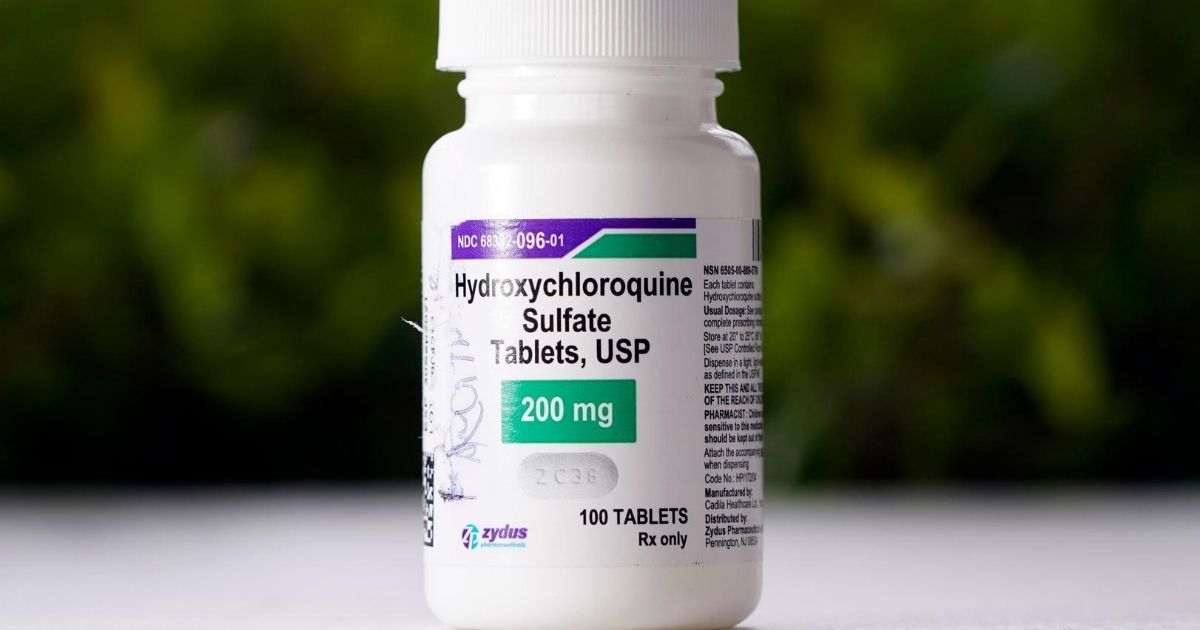 The Western Journal
The Western Journal By Erin Coates
A month-old request from a Michigan hospital for emergency use authorization to treat COVID-19 patients with hydroxychloroquine has been denied by the U.S. Food and Drug Administration.
The Detroit-area Henry Ford Health System requested to use the anti-malaria drug on a group of patients “meeting very specific criteria” on July 6, MLive reported.
The FDA denied the hospital’s request this week, Dr. Adnan Munkarah, the system’s executive vice president and chief clinical officer, confirmed in a Thursday statement.
The denial of the emergency use authorization request will not impact the hospital’s “randomized, double-blind study of hydroxychloroquine as a preventative treatment,” MLive reported, citing a hospital spokesperson.
The use of hydroxychloroquine has been controversial for months.
A May 22 study posted in The Lancet used data from analytics company Surgisphere to conclude that coronavirus patients taking chloroquine or hydroxychloroquine were more likely to die in the hospital, Science reported.
Within days of the study’s publication, randomized trials of hydroxychloroquine came to a stop, including part of the World Health Organization’s trial of potential COVID-19 treatments. However, the data used in that study had been scrutinized and described as “flawed,” and was ultimately retracted.
When President Donald Trump began taking hydroxychloroquine as a way to prevent him from contracting COVID-19, the mainstream media and Democrats mocked him for it.
Last month, Henry Ford Health System published a study in the International Journal of Infectious Diseases that found hydroxychloroquine helped patients survive COVID-19 while in the hospital.
Researchers studied a group of 2,541 hospitalized patients and found mortality rates were substantially reduced when patients were treated with hydroxychloroquine.
The study found that 13 percent of patients treated with just hydroxychloroquine died compared to 26.4 percent not treated with the drug.
“Overall crude mortality rates were 18.1 percent in the entire cohort, 13.5 percent in the hydroxychloroquine alone group, 20.1 percent among those receiving hydroxychloroquine + azithromycin, 22.4 percent among the azithromycin alone group, and 26.4 percent for neither drug,” the study’s report read.
Dr. Anthony Fauci, the director of the National Institute of Allergy and Infectious Diseases, called the study “flawed” because it wasn’t a randomized, placebo-controlled trial, MLive reported.
“The Henry Ford Hospital study that was published was a non-controlled, retrospective cohort study that was confounded by a number of issues including the fact that many people who received hydroxychloroquine were also receiving corticosteroids, which we know from another study gives a clear benefit in reducing deaths with advanced disease,” he said.
Munkarah wrote in an Aug. 3 letter that the hospital will not make any comment about its study outside the medical community.
“Unfortunately, the political climate that has persisted has made any objective discussion about this drug impossible, and we are deeply saddened by this turn of events,” he wrote.
“Our goal as scientists has solely been to report validated findings and allow the science to speak for itself, regardless of political considerations.”
The hospital is still using remdesivir and convalescent plasma to treat its patients “where clinically indicated,” a spokesperson told MLive.

